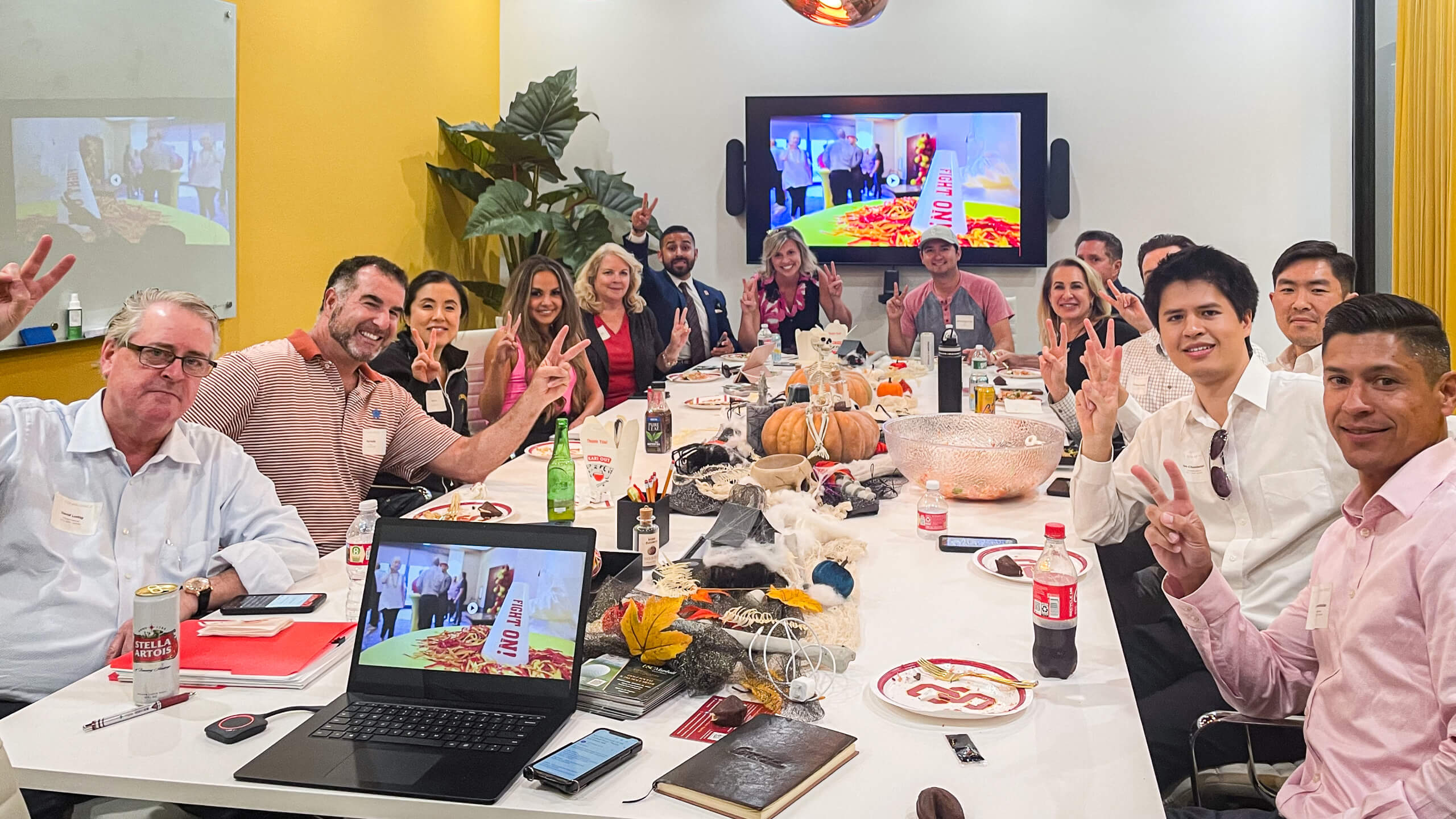When employees are in the office, it’s easy for employers to see what they’re up to.
But things are a bit different now.
With many team members working from home, either full or part-time, employers need to focus more on building trust with remote team members to evaluate organizational and individual success based on output rather than hours worked.
And doing so requires a shift in both mindsets and systems.
Remote employees have shown they can be productive, but how can organizations measure and evaluate their efforts if they actually see how hard they’re working?
Redefining Success in the New Norm
Success needs to be redefined in our new hybrid and remote-work world.
Instead of “time in office” as the key metric, results and outcomes are significantly more important.
The reality is that, once employees were released from the standard nine-to-five in-office workday, many of them found other times in the day or week to be productive. Or, without the distractions of the office, they could get more done in less time.
And in reality, the act of being physically present in the office doesn’t necessarily mean being productive and working hard.
So, holding employees to a time or location-based measurement of success simply doesn’t work anymore.
Without your employees being physically present in the office, managers and leaders need to shift their mindsets and come up with new standards of organizational success.
Here are a few questions to start thinking about:
- Are employees engaged and interested in their work?
- Do team members communicate well and frequently with each other?
- Are deadlines consistently being met?
- How often do employees reach out for help and support?
- Are objective organization-wide KPIs being met?
- What are our retention and attrition rates?
These metrics may not be as clear as an employee sitting at their desk for eight hours a day but reflects what’s truly important to organizational success.
Creating Accountability and Building Trust With Hybrid Workers
If you throw away the metric and expectation of being in the office every day as a measure of success, how do you create accountability?
It starts by building trust with remote workers.
Employers need to empower and equip their employees to do their work well, meet outcomes, and thrive at work.
And it’s not going to happen by constantly watching over their shoulders, whether in-person or virtually.
Accountability and building trust with remote workers go hand-in-hand. Accountability sets standards, processes, and expectations. It’s a way to clearly communicate what’s important in a workplace and what employees will be held to.
But once those mechanisms are in place, employers need to take a step back.
Instead of constantly following up and micro-managing, they need to be building trust with remote workers by demonstrating confidence in their ability to succeed.
5 Ways to Create Accountability in the Workplace
1. Create an Optimal Workspace
Step one for setting your employees up for success is creating an optimal workspace. This could look a few ways:
- Providing a home office stipend to optimize their workspace
- Offering coworking memberships to those who want to come into an office occasionally during the week
- Using bookable meeting rooms to foster in-person connection between colleagues
- Consider a flexible private office to boost collaboration
Start by talking to your employees and getting a clear idea of how they work best. Then try to find solutions that can accommodate this.
Flexible workspaces are an excellent solution for small businesses and organizations. Hybrid offices are the future of work because they’re cost-effective, prioritize in-person communication, and take advantage of spatial diversity.
When your employees have an optimal workspace, they’re empowered to do their best work. This helps start building trust with remote workers because they know you’re looking out for the best option.
2. Set Expectations
Another foundational way to foster accountability is to have very clear expectations. When everyone is on the same page, you can hold each other to the same standard.
Clear expectations let managers and leaders “set it and forget it.” They communicate something, bring everyone on the into agreement and then practice building trust with remote workers by stepping back and letting it run.
Here are some areas to focus on setting clear expectations and guidelines:
- Job descriptions: Even prospective employees should have a clear idea of what’s expected of them in the role. Job descriptions should include information about the remote work policy, reporting structures, and other relevant information.
- Role manuals: Once an employee starts their job, they should have a clear role manual that outlines organizational expectations and indicators of success in their role.
- Policies and procedures: The entire team should be on the same page about organizational policies and procedures. Spend time creating a clear outline with information about HR processes, remote work policy, reporting structures, communication guidelines, etc.
- KPIs: Key Process Indicators are objective measurements such as sales volume, revenue, new client acquisitions, or anything else that’s important to the success of your business. By defining these clearly for both an organization and employee, each person knows exactly what they’re working towards.
Through clarity in these things, you foster accountability and start building trust with remote workers.
3. Get the Right Tools, Technology, and Systems
Accountability doesn’t always have to be internal and self-motivated. A lot of people are extrinsically motivated, so the right tools, technology, and systems can be very effective.
There are two ways to use tools, technology, and systems to foster accountability:
- Indirectly: By streamlining your tools and tech, you empower employees to work better and hold themselves accountable to goals and outcomes.
- Directly: Time-tracking software (e.g. DeskTime or ActivTrak), shared calendars, or reporting software can directly hold employees accountable to their managers and team members. If you choose to use something like this, make sure the standards for how it will be used are openly shared. The goal isn’t to spy on employees, but foster accountability.
Other accountability mechanisms include personal strategies like finding a to-do list system that works for you or creating accountability groups with team members.
4. Prioritize In-Person Interactions
On the other side of technology is in-person interactions, which are equally important to build accountability.
As team members get to know each other and learn to communicate well, it breaks down barriers and starts building trust with remote workers. It’s hard to be accountable to team members you’ve never met before!
We wrote previously about the value of social interactions to boost team dynamics—here are six ideas to increase connections at work:
- Strategically use your meetings to foster connection
- Have regular check-ins with team members
- Find a flexible workspace that encourages collaboration
- Host and take part in social events
- Offer professional development
- Use technology to complement and encourage interpersonal communication
5. Embrace Flexibility
Once you’ve identified what success looks like (i.e. KPIs), then “time in office” truly doesn’t matter anymore. A key way to start building trust with remote workers is to allow them to get their work done when and where they want, so long as they’re meeting goals.
There are, of course, times when it’s reasonable to set work-hour expectations. Meetings, collaboration, and time-sensitive issues all require employees to be ready to work at a specific time.
But if you’ve laid the groundwork for developing accountability and building trust with remote workers, you don’t need to watch the clock for your employees. Embrace flexibility and hold them to the goals and outcomes you agreed on together.
The workplace has changed and old strategies for success don’t necessarily work anymore. By redefining success as output and results rather than “time in office,” organizations can thrive.
If you’re looking for a workspace where you and your team can connect, collaborate, and build bonds, book a tour of The Colab Space today.






